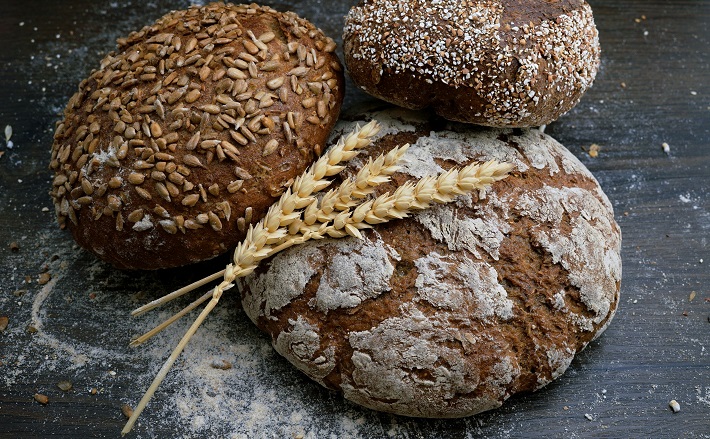Preaching on the Bread of Life passages this summer? Before diving into the commentaries, slow down and consider bread, simple bread.
Begin by gathering your ingredients. Inhale and exhale slowly as you measure out your flour, your salt, and your yeast. With each inhale and exhale, repeat these words:
Inhale: Lord, give us this day.
Exhale: Our daily bread.
Once your dry ingredients are in the bowl, close your eyes and mix them together with your hand. Pay attention to the feeling of the cool flour and the gritty salt, then ask yourself: What will this bread teach me today?
When I teach workshops on baking bread, I begin by encouraging participants to understand their work as an act of prayer. In addition to a recipe, I provide them with a liturgy that will guide them through each step of the process. I love posing this question at the beginning of each liturgy, during what I call the “spiritual mise en place”—a kind of examen to prepare you for the steps ahead. What will this bread teach me?
It might sound strange, but after years of baking professionally and in my home, I’m convinced that there is no better way to understand the role of bread in Scripture than by actually baking it. Feeling the transformation of flour and water into a tacky dough, seeing the development of gluten that takes place in the hours ahead, then smelling the final death of the yeast as the loaf takes form in the oven—it teaches you that bread is not merely a metaphor but a tangible means of knowing God in our hands and on our tongues.
Bread is at the same time incredibly simple and infinitely complex. At its most basic, it is made of just four ingredients: flour, water, yeast, and salt. It’s so mundane that we use it as a way to talk about God’s provision for all of our needs. The terms “daily bread” and “bread winner” and “breaking bread” are so woven into our vernacular that we forget they refer to actual, literal loaves that nourish us and that taste delicious too.
At the same time, bread is a difficult skill to master. Variances in flour type, in water temperature, and in the humidity outside can all affect the outcome of a loaf. Bakers can commit their entire lives to the craft of breadmaking and still forever have more to learn. Not only that, but bread has a complex social history as well. The European preference for wheat breads altered both the agriculture and food culture of many parts of the world through colonization. Questions about bread were significant in both the Great Schism and the Reformation—the former sparked by debates about the presence or absence of leaven in the Eucharist and the latter engaging questions about the necessity of wheat versus other grains (a question not disconnected from the previously mentioned agricultural shifts through colonization).
To understand all that is invoked in the use of bread metaphors in Scripture, especially Jesus’ self-identification as the Bread of Life, I believe that Christians must begin with actual bread baking. It’s only in this way that we can fully understand the beauty and tension of the simultaneous simplicity and complexity at hand.
“But why is the John 6 passage SO repetitive?” a friend asked me recently. She was calling for guidance as she prepares to preach on the Bread of Life for five weeks later this summer. “It’s hard to preach. It feels like the same thing over and over and over again.”
I chuckled. “Sounds a bit like actually baking bread,” I responded.
At every Bake & Pray workshop I teach, I let participants know that they will need to make the same recipe over and over again in order to really get to know it. Take notes, I encourage them. It might feel repetitive, maybe even boring, but that repetition is the key.
Like the words and movements we repeat week after week in our Sunday morning liturgies, the repetition of baking burrows the process down into our hands, our noses, and our ears, so that in time we know the bread intimately with all of our senses. It’s then that the process of baking becomes most informative—that we are most prepared to learn what the bread has to teach us today.


